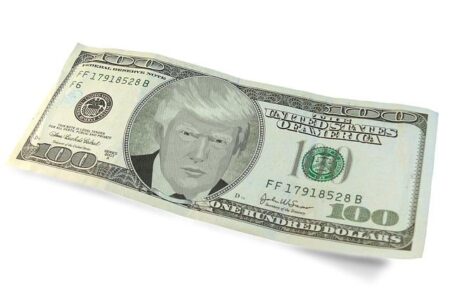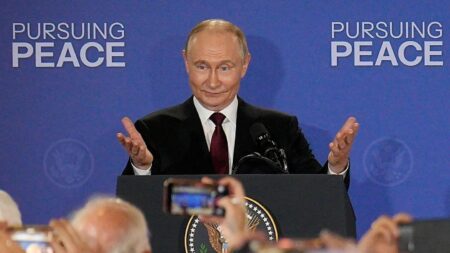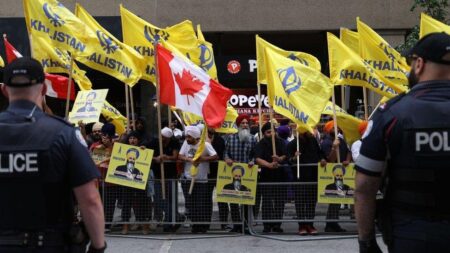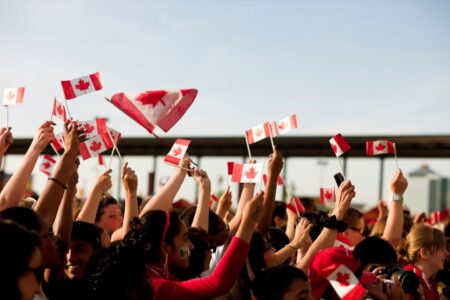Live: French President Emmanuel Macron urges calm as France prepares for a tense and emotional tribute to far-right activist Quentin Deranque. Authorities remain on high alert, bracing for potential unrest amid a nation sharply divided in opinion
Browsing: nationalism
In France, the far right has found a powerful new martyr, sparking a wave of fierce nationalist fervor. This development highlights the growing political rift and the strategic use of victimhood to galvanize support among far-right groups
As Trump allies intensify their outreach in Alberta, the local passion for separatism is starting to wane. The province’s independence movement seems to be losing momentum as its connections with U.S. political figures grow stronger
Giorgia Meloni has thrust Italy into the spotlight of European politics. Now, as prime minister, she is driven to solidify her leadership, confront urgent domestic issues head-on, and reshape the nation’s political destiny
Argentina’s Javier Milei and the worldwide rise of nationalist leaders like Donald Trump expose the real limits of populist politics during economic crises, as explored in The Brooklyn Rail’s latest analysis
Tensions are soaring across Australia as far-right groups become more “emboldened like never before.” Authorities are raising urgent alarms about the escalating threats amid a wave of extremist activities sweeping the country
Former President Donald Trump stirred up controversy by declaring that the word “Indian” is now off-limits, insisting that only Indians themselves should use it. This provocative claim has ignited a fiery debate about cultural identity and the influence of language. Watch the full report on The Times of India
Spain continues to grapple with deep political and regional divides, from Catalonia’s passionate push for independence to glaring economic disparities. These challenges strain the nation’s unity, revealing persistent tensions that the government struggles to resolve
France is facing a deepening integration crisis as rising social tensions expose fractures in its multicultural fabric. The Spectator uncovers the urgent challenges in housing, education, and employment that are fueling unrest across the country’s urban heartlands
Anti-India sentiment is surging across the US, igniting fierce reactions both online and in public spaces. From intense social media backlash to large-scale protests, this escalating wave of hostility poses significant challenges for Indian communities and officials alike, reports the Times of India
PBS explores the explosive rise of Germany’s New Right, uncovering dynamic nationalist movements that are reshaping the country’s political landscape. This dramatic shift raises urgent questions about the future of democracy and social cohesion in Europe’s largest economy
Japan is facing a growing labor shortage and urgently needs foreign workers to bridge the gap. However, rising far-right opposition is fueling resentment and resistance against immigration policies, making it increasingly challenging to address the country’s workforce needs
Early forecasts reveal a dramatic surge in support for Germany’s far-right parties, with backing tripling in recent local elections. Experts warn this sharp increase highlights a rise in nationalism and intensifying political polarization sweeping across the country
Far-right populist parties have surged to the top of the polls in Germany, France, and Britain for the very first time, signaling a dramatic transformation in Europe’s political landscape, NBC News reports
Russian President Vladimir Putin views the conflict with Ukraine as a striking response to Russia’s waning global influence, framing the war as a daring mission to reclaim the nation’s lost glory and power, The New York Times reports
A Khalistani group stunned attendees by abruptly disrupting Indian Independence Day celebrations in Australia, NDTV reports. This sudden upheaval sparked intense outrage among participants, casting a shadow over what was intended to be a peaceful and joyous event
Japan is witnessing a growing wave of anti-immigration sentiment, fueled by deepening concerns over job security and cultural identity. This mounting backlash challenges the government’s push to address labor shortages by opening doors to more foreign workers
A rising separatist movement in Canada is grabbing headlines, fueled by intense regional frustrations and stark political divides. However, experts caution that the notion of Canada turning into the “51st state” of the U.S. is still far from reality
In Alberta, separatist groups are enthusiastically rallying behind former U.S. President Donald Trump, viewing him as a formidable ally. His bold populist message resonates deeply amid rising frustration with federal policies and escalating economic challenges
A recent Guardian report reveals a growing wave of Canadians harboring negative feelings toward the US, fueled by concerns over trade policies and fears about threats to national sovereignty. These mounting tensions are straining the bond between the two countries




















